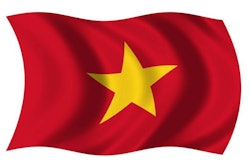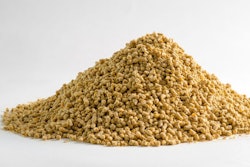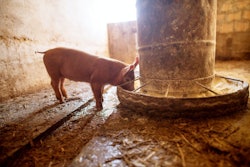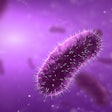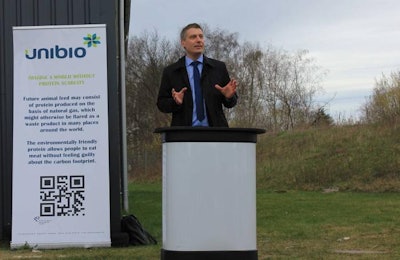
Companies partner to test Unibio’s single-cell protein
Denmark’s Ministry of the Environment and Food has offered financial support to a project testing the potential of a single-cell protein to replace conventional protein ingredients in animal feeds.
Through its Green Development and Demonstration Program, the Ministry is supporting several Danish partners in their investigation into the potential of Uniprotein as a feed ingredient. With government funding amounting to DKK9.5 million (US$1.4 million), initial work on the project began in July 2019, and is due to be completed within three years.
Partners in the project with Uniprotein manufacturer Unibio are Danish Agro, Aarhus University/AU Foulum, DTU Aqua, and BioMar.
Ina Karlshøj Julegaard, commercial animal nutritionist at Unibio, views this latest cooperation positively.
“I am quite convinced that our trials will show that Danish farmers will see a great potential in Uniprotein — both in terms of ensuring the right feed solution, and offering a more sustainable protein product securing stable supplies,” said Julegaard.
Uniprotein: efficient and sustainable protein source
“I see a great potential in Uniprotein as an efficient and sustainable protein source with a very promising nutrition profile,” said Arne Ringsing, product manager at Danish Agro. “I look forward to thoroughly testing the product in the trials we have planned. We have already begun the first palatability trials involving piglets of different ages, and that part looks promising. Uniprotein will quite likely become a strong protein alternative in terms of feed solutions for Danish farmers.”
A single-cell bacterial protein developed by Unibio, Uniprotein is produced using a closed patented fermentation process called “U-loop technology.” Methane is the carbon source. After a short period of fermentation, a protein-rich biomass is produced that can be harvested to become Uniprotein.
Among the key advantages of this product is its much smaller environmental footprint than many traditional proteins. By using methane from biogas, the only waste products in the process are water and carbon dioxide.
Along with insects, yeast derivatives, pea protein and algae, Unibio’s single-cell bacterial protein is among the top potential alternatives to traditional protein sources in animal feeds. Main drivers for switching proteins are sustainability, availability and cost.
Sustainable protein project partners
Among the other partners in the project is Aarhus University, which has a strong international reputation for research, and its agriculture and food research is based at AU Foulum. BioMar is a world leader in high-performance diets for 45 different fish and shrimp species in more than 80 countries. Part of the Technical University of Denmark (DTU), DTU Aqua or the National Institute of Aquatic Resources specializes in the sustainable exploitation and management of aquatic resources.
Danish Agro Group is an international player in feed mixes, ingredients and vitamin mixes, as well as fertilizer and crop protection. It also trades in seeds and energy. The company operates feed mills in Denmark, and across Scandinavia and the Baltic Sea region. In 2018, Danish Agro was among the Top 10 animal feed companies in Europe, according to WATTAgNet.com.


